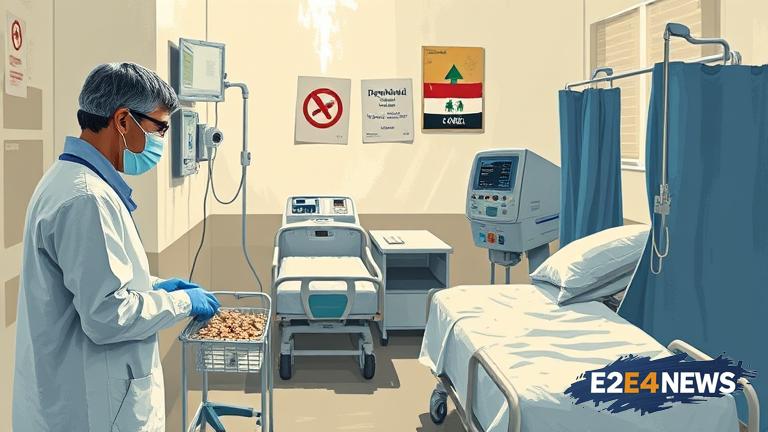In a move that has sparked widespread controversy, Denmark has announced its decision to refuse medical aid to patients from Gaza. The Danish government has cited security concerns and strained relations with Palestine as the primary reasons behind this decision. This move has been met with widespread criticism from human rights organizations and medical professionals, who argue that denying medical aid to those in need is a violation of basic human rights. The situation in Gaza has been deteriorating for years, with the region facing severe shortages of medical supplies and personnel. The Danish government’s decision is likely to exacerbate the situation, leaving many patients without access to life-saving treatment. The decision has also been condemned by the Palestinian Authority, which has accused Denmark of abandoning its humanitarian obligations. The Danish government has defended its decision, stating that it cannot guarantee the safety of its medical personnel in Gaza. However, many have questioned this reasoning, pointing out that other countries have been able to provide medical aid to Gaza without incident. The situation in Gaza is complex and multifaceted, with a range of factors contributing to the humanitarian crisis. The Israeli-Palestinian conflict has been ongoing for decades, with both sides suffering heavy losses. The blockade of Gaza, imposed by Israel and Egypt, has had a devastating impact on the region’s economy and infrastructure. The lack of access to basic necessities like food, water, and medical care has left many Gazans struggling to survive. The Danish government’s decision to refuse medical aid to Gaza patients is just the latest in a long line of challenges facing the region. Despite the challenges, many organizations and individuals are working tirelessly to provide aid to those in need. These efforts include providing medical supplies, food, and shelter to those affected by the conflict. However, more needs to be done to address the root causes of the crisis and to ensure that those in need receive the assistance they require. The international community has a critical role to play in resolving the crisis, and it is imperative that governments and organizations work together to provide humanitarian aid and support. The situation in Gaza is a stark reminder of the importance of humanitarian aid and the need for governments and organizations to prioritize the needs of those affected by conflict. As the situation continues to deteriorate, it is essential that the international community takes action to provide support and assistance to those in need. The Danish government’s decision to refuse medical aid to Gaza patients is a setback, but it is not a reason to give up hope. Instead, it should serve as a catalyst for further action and a reminder of the importance of humanitarian aid in times of crisis. The people of Gaza deserve our support and assistance, and it is our responsibility to ensure that they receive the aid they need to survive. The situation in Gaza is a complex and challenging one, but with the right support and assistance, it is possible to make a positive difference. By working together and prioritizing the needs of those affected by the conflict, we can help to alleviate the suffering and promote a more peaceful and stable future. The Danish government’s decision may have been a setback, but it is not the end of the story. Instead, it is a call to action, a reminder that there is still much work to be done to support those in need and to promote a more just and equitable world.
